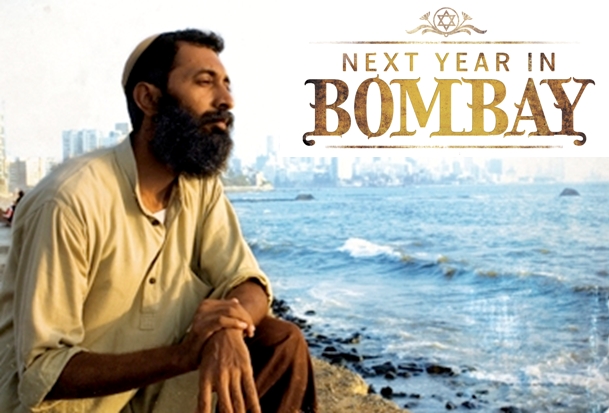Op Eds & Articles

Courtesy of Asian Jewish Life

![]()
A smiling bride, an ecstatic groom, jubilant guests, vibrant colors, joyous Jewish music: the start of a future of uncertainty? Next Year in Bombay is a film of questions as co-director and producer Jonas Pariente explains. “Rather than a message, our film carries questions. Questions about a people’s identity, and the dilemma that migrating communities have to face: How to cultivate two cultures at once? Where should I live and where is the right place to raise my kids? How do I maintain the culture I’ve left and blend in the culture welcoming me?”
The film doesn’t answer these questions but rather strings together a series of portraits that create a picture of India’s contemporary Jewish community and the challenges they face as individuals and as a community.
The creative impetus behind the film, Pariente explains, “started with a very random detail; I was traveling in India with my best friend, who keeps kosher. After a month in Rajasthan where he didn’t have any meat, we were heading to Mumbai. He tried googling “kosher+Mumbai.” Doing that, we ended up at the Chabad House which at the time was run by the late Rabbi Holtzberg and his wife… They were the ones that brought us to a synagogue in south Bombay.” Pariente explains that this was the first time he ever met Indian Jews.
For Pariente, himself from a half- Egyptian, half-Polish Jewish family in France and co-producer Mathias Mangin who is not Jewish, but from a bi-cultural background, French and Brazilian, the ideas of identity, assimilation and migration are universal themes. According to Pariente, “These are questions which we believe are not only typical of the Jewish people, but more and more common in this century of migrations and diasporas.”
This global, multicultural view runs throughout the film. The Indian Jews in the film speak to the point that Jews have peacefully coexisted with other religions in India for 2000 years. The question again becomes at what cost? What is left after the majority of the community migrates or entirely assimilates?
The film makers speak with Aadiyel Wakrulkar who at 15 years old is the youngest Bene Israel of the Konkan region, south of Bombay. He comments that he is the only Jew in his school. He is unusually mature for his age and talks about how he is accepted by his peers without question. Though his father runs a family business and Aadiyel is in line to take it over, even with an economic opportunity, the question remains what future is left for him there? How can he not feel some degree of social isolation? How can he remain there and not entirely assimilate? Is there another choice?
Also caught in an internal conflict between family/India and Judaism, the filmmakers focus on Sharon and Sharona Galsulkar. Sharon and Sharona have both returned to India from Israel with a sense of duty to revitalize the Jewish future of their country. As Pariente summarizes, “In Sharon and Sharona’s case the tension is whether they sacrifice their kids’ education to stay with their decreasing community, or basically abandon the community to bring up their kids in Israel.”
Both Sharon and Sharona, whose wedding opened the film, are portrayed without the joyful music and colorful stripped down to their real world selves, caught between their sense of communal responsibility and their responsibility to their own children. The two ideals are seemingly incompatible. As observant Jews, they are socially isolated within the remaining community in Mumbai. Like Aadiyel in Alibag, they coexist with their Muslim neighbors but what will their children think of their choices and the isolation they will face?
Sharon and Sharona struggle to revive traditional Judaism – a battle that it seems might be over. So, is there a next year in Bombay? Pariente believes that the Bene Israel community will continue to maintain a presence in India. They don’t foresee the Bene Israel that settled in Israel or the United States returning to India.
The film ends with Sharona, the more pragmatic of the two, and Sharon, the idealist, essentially in agreement that the lack of Jewish educational opportunities for their two daughters will drive them away. They are inextricably attached to the land of Israel. As for their sense of obligation to the Jewish community of India, the question becomes: if not them, then who?
Pariente says that he and Mangin do not see the community “maintaining the level of religiousness that Sharon and Sharona are hoping for.” They expect that the community “will rather evolve towards a more secular and cultural community, like the one we see in the Western world, based on the fact that young, urbanized Indians seem to move away from religion or at least religious traditionalism, a trend in India not unique to the Jewish community.” Likewise, those that are religious, unlike their grandparents’ generation, have a vibrant Bene Israel community in Israel waiting to take them in.
Interestingly, Pariente reports that Sharon and Sharona are still in Mumbai and have since filming had a third daughter. Presumably were Pariente and Mangin to remake the film today, little will have changed with respect to their internal conflict between communal obligation and familial responsibility. They will continue to try to create a Jewish world for their daughters that will be compatible with their religious ideals.
So this year in Bombay, yes. Next year in Bombay is still uncertain.

 Back
Back